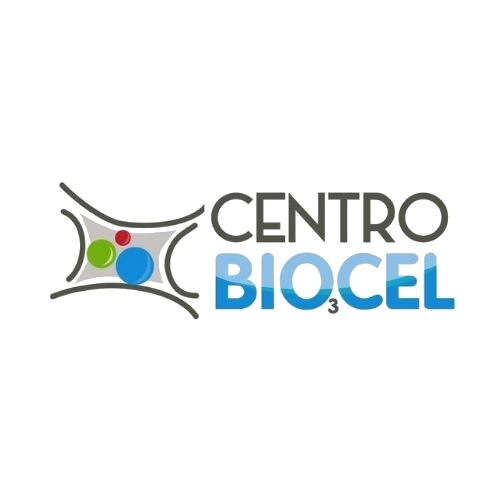Ibogaine Addiction Treatment
treatment of psychological addiction, particularly important because it helps reduce the desire to consume opioids.
Whats Ibogaine?
Ibogaine is the active ingredient of a plant called iboga tabernant. The extract comes from the root of this African plant, which to date has not been able to be chemically manufactured, due to its molecular complexity. It is scarce because each plant dies after being used as a treatment.
Its effect is to bind to the opiate receptors and cause a healing effect, with the release of dopamine and serotonin, which conditions a well-being, anti-depressant effect, with an effect on the limbic system, the site where drugs of any kind act, including fentanyl, heroin, cocaine, crystal, as well as alcohol and tobacco.
Its effect is to bind to the opiate receptors and cause a healing effect, with the release of dopamine and serotonin, which conditions a well-being, anti-depressant effect, with an effect on the limbic system, the site where drugs of any kind act, including fentanyl, heroin, cocaine, crystal, as well as alcohol and tobacco.
What is Ibogaine treatment for?
Ibogaine addiction therapy is used to address a variety of addictions, from substances such as heroin to addictive behaviors.
These drugs cause irreversible organic brain damage over time, because they make neurons work in an extreme way and cause direct damage to them through the accumulation of free radicals and their oxidation.
These drugs cause irreversible organic brain damage over time, because they make neurons work in an extreme way and cause direct damage to them through the accumulation of free radicals and their oxidation.
The neuron that protects itself hides receptors that, on the one hand, cause protection so that it does not overwork itself, and on the other hand, prevent the addict from experiencing the same feeling of well-being when using the drug, which causes the addict to use more and more doses to feel the same pleasure that he felt before, with the same dose.
Ibogaine works like a miracle, since, in just 72 hours, we do what nature does in 15 to 20 years. That is, we induce a neuronal reset, with permanent neurobiological changes, taking the brain back to what it was before using drugs.
Ibogaine works like a miracle, since, in just 72 hours, we do what nature does in 15 to 20 years. That is, we induce a neuronal reset, with permanent neurobiological changes, taking the brain back to what it was before using drugs.
Ibogaine Treatment Benefits
-
Results in one session:
In just 72 hours we can remove the addiction. It does not require more days of hospitalization. Depression and anxiety are removed at the same time as the addiction and do not require chronic medication. -
No withdrawal
With ibagain, you don't need to go through a painful withdrawal period. It works immediately, making the necessary neurobiological changes for neuronal reset. -
Introspection
One effect of ibogaine is that it can generate an effect of mystical introspection, which helps the patient to stabilize emotionally.
General Recomendations
This therapy should be applied medically and not recreationally. It should be administered per kilo of body weight, like any medication, since it has several medically important considerations.
A prior medical assessment is necessary, with general examinations, electrocardiogram, antidoping and in some cases ultrasound of the liver and liver function tests, as well as having adequate control of blood pressure.
It is not recommended for patients with psychiatric disorders such as schizophrenia and psychosis. Each case should be assessed individually, as well as documenting the medications that are being used chronically.
A prior medical assessment is necessary, with general examinations, electrocardiogram, antidoping and in some cases ultrasound of the liver and liver function tests, as well as having adequate control of blood pressure.
It is not recommended for patients with psychiatric disorders such as schizophrenia and psychosis. Each case should be assessed individually, as well as documenting the medications that are being used chronically.
Other Uses
Other applications of ibogaine are for Parkinson's syndrome and disease. It significantly reduces tremor, in this case requiring a different treatment scheme than that for addictions.
Ibogaine alleviates the symptoms of opioid withdrawal syndrome by interfering with the opioid receptors in the human brain. The exact mechanism through which it does this is not known. However, it can do so in very few administrations and when the process is complete, there is no need to use more ibogaine. This is not the case with chemical substitutes, such as methadone, which occupy the opioid receptors and cause the same dependence, although not with the same effects.
Ibogaine alleviates the symptoms of opioid withdrawal syndrome by interfering with the opioid receptors in the human brain. The exact mechanism through which it does this is not known. However, it can do so in very few administrations and when the process is complete, there is no need to use more ibogaine. This is not the case with chemical substitutes, such as methadone, which occupy the opioid receptors and cause the same dependence, although not with the same effects.
Other treatments that enhance the previous therapies and are part of
our Addictions program
our Addictions program
At Centro Biocel, we have a program of
transcranial neuronal electrostimulation, to fine-tune the effects of anxiety, depression and addictions.
20 sessions can be applied after being discharged from your 72-hour hospital stay. Its effect is an electromagnetic regulation of the neurons, so that they work in a harmonious and more efficient manner.
Regain and control your life
Take back control of your life and abandon your dependence on substances,
with personalized addiction treatments,
schedule your evaluation appointment
with personalized addiction treatments,
schedule your evaluation appointment

